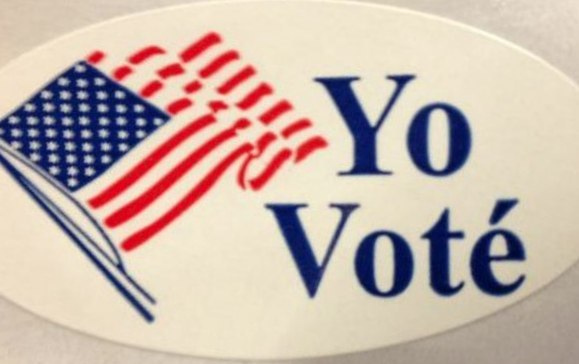
By Gretel A. Perera, Q Communications Group
As the Presidential elections come to a close, many of us are giving a sigh of relief. Now we can all move on with our lives without the constant barrage of election news coverage, no more enduring endless negative attack ads during our favorite TV shows and no more unfriending Friends on Facebook or Twitter because of their political rants.
But before we close this political chapter, it is important to take a look a closer look at the real winner in these elections. The numbers show that it wasn’t Obama or Romney, but instead: social media. There is no doubt the 2012 election was the first “social” presidential election ever, with record-breaking stats throughout the entire process. Every major political event seemed to out beat the other with more social media engagement, especially on Twitter.
Millions of Americans became more engaged in the political process than ever before by having conversations with people they have never met before (and probably never will) through the virtual world of Twitter, Facebook, Twitter, Instagram, etc. Creativity was at an all-time high, with the fight for the coolest GIF, meme, image, @Twitter handle or #hashtag that would go viral and get the most retweets.
Speaking of retweets, here are some interesting stats from key moments during the elections from the social media perspective:
Election Day
- The 2012 Presidential election became the most tweeted event ever in the history of Twitter with 32 million tweets.
- The activity on Twitter peaked at 327,000 tweets per minute when it was announced that Obama had won the re-election.
- More than 730,000 people retweeted President Obama’s “Four more years” celebratory message and picture, making it the most retweeted tweet in Twitter’s history.
- The same message and picture were posted on Obama’s Facebook page, which generated 3.2 million “likes” making it Facebook’s most “liked” photo ever.
- Shortly after his concession speech, Mitt Romney posted a “Thank you” image on his Facebook page, which drew more than 700,000 “likes.”
- To put things in context: In 2008, there were only 1.8 million total Tweets sent globally, about all topics on Election Day.
Debates
- There were more than 10 million Tweets during the first Presidential debate.
- There were more than a 250,000 Tweets mentioning “Big Bird” during the first Presidential debate.
- 4 million Tweets were sent during the VP debate.
- The VP debate’s buzzword was “malarkey,” which generated more than 30,000 Tweets.
- 7.2 million Tweets were sent during the second Presidential 90-minute debate.
- During the second Presidential debate, the audience question to Romney on immigration generated the highest amounts of conversation with more than 109,500 tweets per minute.
- 6.5 million Tweets were sent about the 90-minute final Presidential debate.
- Obama’s statement “We also have fewer horses and bayonets” generated the most conversation with more than 105,700 tweets per minute.
Political Conventions
- The Republican National Convention (RNC) drew four million tweets.
- Mitt Romney’s acceptance speech at the RNC drew more than 14,000 tweets per minute.
- The Democratic National Convention (DNC) saw a total of 9.5 million tweets.
- The final day of the DNC delivered 4 million Tweets, which is about equal to the total number from the RNC’s entire week.
- Obama’s acceptance speech at the DNC set a new record of 52,000 tweets per minute.
- Both former President Clinton and the First Lady beat Romney’s numbers, with Clinton seeing just over 22,000 per minute and Michelle Obama with over 28,000 per minute.
- To put things in context: In 2008, Twitter activity for both conventions combined was around 360,000.
I am proud to have personally been an active part of the political social media conversation, starting from my role on the digital media team at the DNC, to continuous tweeting/retweeting during the major political milestones, to culminating with being part of the first ever Google Hangout on CNN en Español during an Election Night. It’s been a very social few months and now, as we turn the page on this political chapter, we can only speculate on what lies ahead for social media in #election2016.
What are your thoughts on the role of social media in the 2012 elections?
Be sure to follow me on Twitter at @LaChicaQComm







One Trackback
[…] This piece originally appeared in Más Wired. (function($) { $(function() { if (!$('#fb-root').size()) { $('body').append(''); (function(d, s, id) { var js, fjs = d.getElementsByTagName(s)[0]; if (d.getElementById(id)) {return;} js = d.createElement(s); js.id = id; js.src = "//connect.facebook.net/en_US/all.js#xfbml=1"; fjs.parentNode.insertBefore(js, fjs); }(document, 'script', 'facebook-jssdk')); } }); $.post('http://politic365.com/wp-admin/admin-ajax.php', { action: 'fbc_ping', post_id: '52847', nonce: '7c268b785e' }); })(jQuery); […]